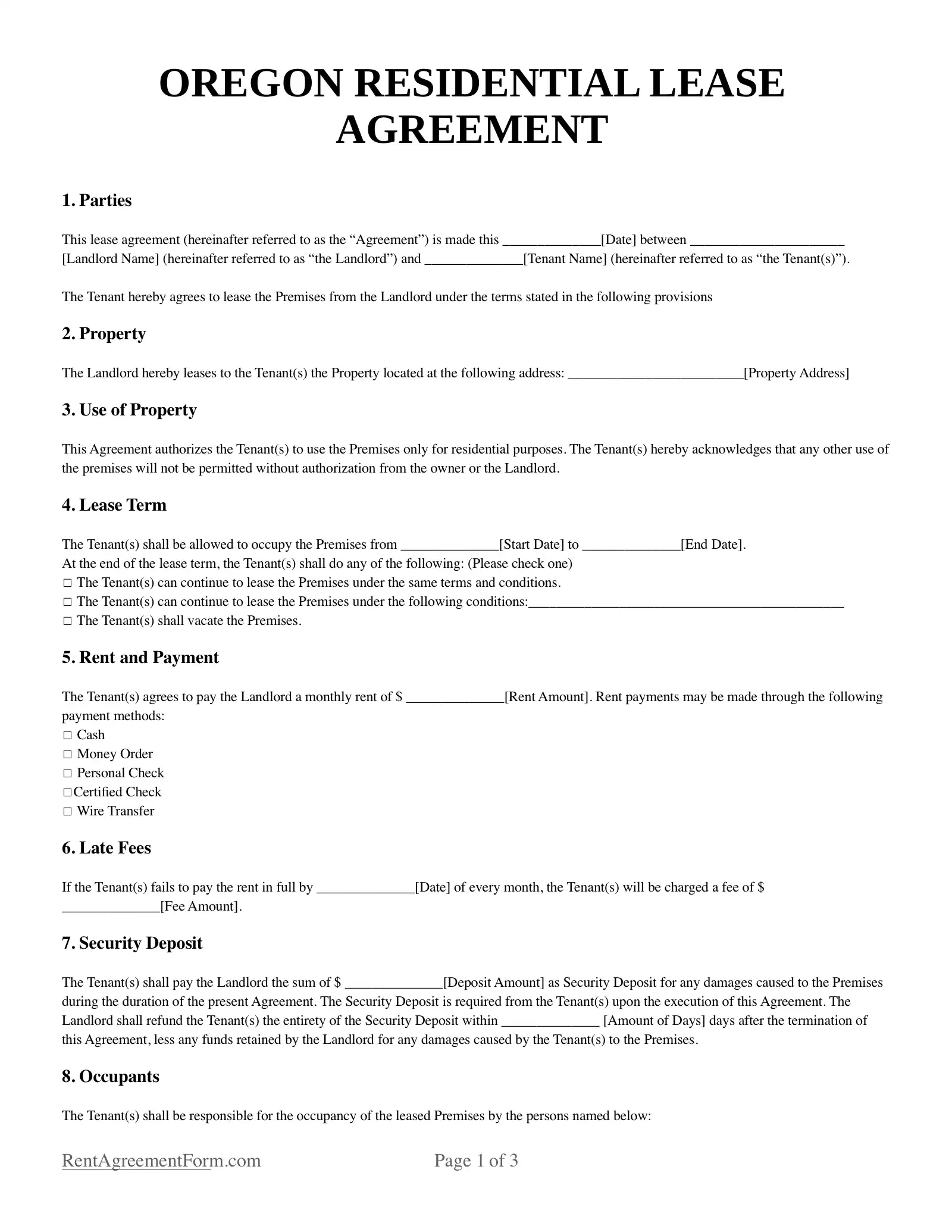Oregon Residential Lease Agreement Form
A standard Oregon Residential Agreement form is a legal document that outlines the terms and conditions of renting a residential property. This contract binds the landlord leasing their property and the tenant.
This crucial document details the:
- Duration of occupancy
- Rental terms
- Monthly fees
The tenant begins the process by filling out a simple Oregon Residential Lease Agreement form. It outlines important details about the applicant, such as financial and employment status, previous history of eviction or any criminal records, and personal information.
Once the landlord has performed a background check on the applicant and determined that they will be the best and most reliable tenant of choice, the application is approved.
Upon approval, the landlord and tenant must discuss the Oregon Rental Agreement form to finalize the tenancy.

Required Disclosures in Oregon Lease Agreements
Before moving into a property or room, the landlord must disclose certain information to the occupants. These disclosures are related to health and safety conditions and utilities:
Common Utility Disclosure
In Oregon, some properties share utility meters or common areas between multiple units. This information must be disclosed to the tenant because these systems will dictate their monthly expenses (OR Rev Stat § 90.315).
Lead-based Paint Disclosure
For homes or apartments built before 1978, the rental lease agreement form must include a disclosure of known lead-based paint hazards. Remnants of these paints can be toxic when inhaled and cause ill health.
A fillable lead-based paint disclosure form must be attached to the residential lease agreement form (Federal law 42 U.S.C. § 4852d).
Recycling Notice Disclosure
In multifamily dwellings, the state of Oregon mandates that landlords must provide their tenants with adequate recycling facilities. This especially applies to real estate in the city or the urban growth boundary of a city (OR Rev Stat § 90.318).
Rent Grace Period in Oregon
As for late rental payments, Oregon law states that the landlord must wait four days after the due date to impose a late fee. The late fee must be a reasonable amount and should not exceed more than 5% of the monthly rent (OR Rev Stat § 90.394).
Security Deposits in Oregon
A tenant is required to pay an advance fee at the beginning of the occupancy, which is a security deposit. At the state level, there are no mandates about the amount an Oregon landlord can demand as a security deposit.
Certain cities or counties may have set caps for residential rentals. The average amount for security deposits in the United States is an advanced fee of one or two months’ worth of the rent due.
This amount safeguards the landlord if the tenant cannot pay rent or cause damage to the property that needs repair. They can simply dip into the security deposit to make up for these expenses.
The security deposit must be kept safely in an insured bank account, separate from the landlord’s own funds or money.
Thirty-one days after the occupancy period ends or 31 days after the early termination of the rental lease, the landlord must return the security deposit minus deductions. The amount must be given directly to the tenant or through first-class mail.
If the landlord withholds some or all of the deposit amount, they must provide a written explanation as to why. Some reasons could be unpaid rent, costs of repair to the property, damages, etc. (OR Rev Stat § 90.300).